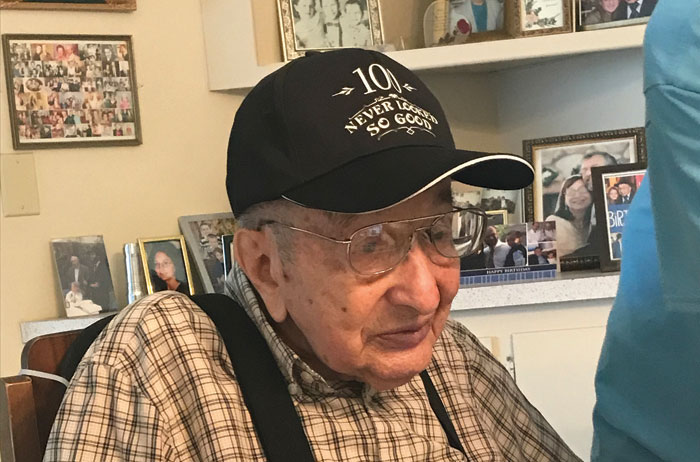
My father, Albert Farkas, whom many called a “Munkacser Yid,” passed away on the second day of Rosh Hashanah at age 102. A long life for a man who spent three years in a labor camp, then returned home to find that all of his family and relatives had been gassed in Auschwitz. Most of the great Jewish community of Munkacs had been wiped out by the Nazis, but my father was a survivor. Until the last week of his life, his mind was sharp, his memory amazing and his commitment to Yiddishkeit never wavering. I asked him once how he could stay so pious and committed to a God who had caused so much pain to the Jewish people? He told me this story.

“Life in Munkacs was good,” he began. “Almost every Jew in town was religious. And the Munkacser Rebbe, whose fame was known worldwide, helped to maintain the spirit of Jewishness throughout the town. I met your mother in school. And we got engaged, but before the wedding could take place, the war broke out. My friends and I were shipped out to a labor camp. For three years, we had no idea what was going on in the rest of the world.
Luckily, I survived and returned to Munkacs and, for the first time, found out about places like Auschwitz and the gas chambers. I also heard that your mother and her entire family were taken to Auschwitz, but I had no way of knowing if they were dead or alive. But that day I made a covenant with God that if Toby was spared, I would forever follow the Jewish commandments.”
When my mother had arrived at Auschwitz, the infamous Mengele asked the crowd, “Who knows a trade?” She and her sister raised their hands. When their father had died earlier, their mother had taught the daughters to cook and sew, so that if they were ever without a husband, they could earn a living. My mother cooked for the officers and her sister sewed uniforms. Every night my mother smuggled food into her dormitory to feed her sister and other starving prisoners.
My father continued. “A few days later, one of the returning neighbors told me she thought that my mother was alive, but she was sick and in a hospital in Grimma, Germany. I immediately set out to find her. But the hospital in Grimma was chaotic and no one knew who was dead or alive. I returned to Munkacs and prayed. Each morning, I went to the train station hoping to see her. For three weeks I went there and waited. And then one morning, she stepped off the train with her sister. Two weeks later, we were married, and since then, I kept my promise to God.”
I was speechless as I absorbed this profound story of love. I kissed him on the forehead and told him how glad I was that he had kept his promise. He and my mother raised three children, and they had seven grandchildren and 18 great grandchildren.
As I sit here remembering my father, the “Munkacser Yid,” I keep thinking that God must have kept him alive so long because he never broke his covenant.
Emil Farkas is a martial arts expert and author of eight books. He can be reached at BHKarate@aol.com.

































 More news and opinions than at a Shabbat dinner, right in your inbox.
More news and opinions than at a Shabbat dinner, right in your inbox.